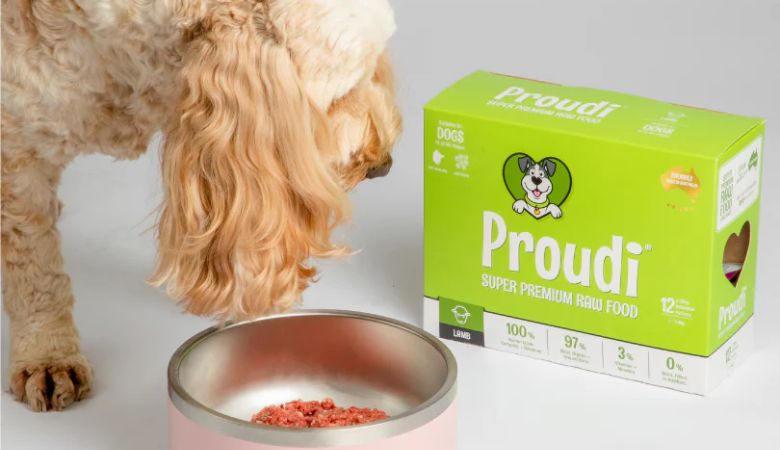Raising a puppy is an exciting journey filled with wagging tails, playful barks, and boundless energy. As a responsible pet owner, one of the most important aspects of puppy care is providing proper nutrition. While there are various dietary options available, raw food diets have gained popularity for their potential health benefits. Here’s a comprehensive guide to feeding your puppy raw food as they grow from 8 weeks to 12 months old.

Why Choose Raw Food?
Raw food diets, often referred to as “BARF” (Biologically Appropriate Raw Food), aim to replicate a dog’s natural ancestral diet. Advocates of raw feeding believe it promotes better overall health, shinier coats, improved dental hygiene, and enhanced vitality. However, it’s essential to ensure that the raw diet is nutritionally balanced to meet your puppy’s specific needs.
Feeding Guidelines by Age
- 8-16 Weeks Old: During the initial stages of growth, puppies require a substantial amount of nutrition to support their rapid development. Feed your puppy approximately 8-10% of their body weight in raw food per day. This equates to about four meals a day. For instance, a 5 kg puppy would need around 500g of raw food daily.
- 16-24 Weeks Old: As your puppy continues to grow, their nutritional needs will evolve. Reduce their raw food intake to about 6-8% of their body weight per day, distributed over three meals. Adjusting the portions ensures that your puppy maintains a healthy weight and develops strong muscles and bones.
- 24-36 Weeks Old: At this stage, your puppy is transitioning from the early stages of growth to adolescence. Feed them approximately 4-6% of their body weight per day, divided into three meals. Monitoring your puppy’s weight and body condition is crucial to avoid overfeeding or underfeeding.
- 36-52 Weeks Old (Up to 12 Months): As your puppy approaches their first birthday, they will require less frequent meals. Feed them about 3-4% of their body weight per day, split into two meals. Gradually transition to an adult raw food diet to ensure they continue to receive balanced nutrition.

Tips for Success
-
Monitor Weight and Condition: Regularly weigh your puppy and assess their body condition to make necessary adjustments to their diet.
-
Balance and Variety: Ensure the raw food diet is balanced with the right mix of proteins, fats, vitamins, and minerals. Variety is key to preventing nutritional deficiencies.
-
Hygiene and Safety: Handle raw food with care to avoid contamination. Clean feeding bowls and surfaces thoroughly after each meal.
Puppies can start to get fussy and push the boundaries when it comes to food as they grow and develop more independence. This typically begins around 4 to 8 months of age. During this time, they may start to test their limits and become more selective about what they eat.
Here are a few tips to manage a picky eater:
-
Establish a Routine: Feed your puppy at the same times every day to create a consistent schedule.
-
Limit Treats: Excessive treats can make them less interested in their regular meals.
-
Variety and Balance: Ensure their diet is balanced and continue to slowly introduce new foods to keep their interest.
-
Avoid Free-Feeding: Remove uneaten food after 15-20 minutes to prevent grazing habits.
-
Positive Reinforcement: Praise and reward your puppy when they eat their meals.

Conclusion
Feeding your puppy a raw food diet can be a rewarding experience that promotes optimal health and well-being. By following these guidelines you can ensure that your puppy grows into a healthy and happy adult dog. Remember, each puppy is unique, so tailor their diet to their individual needs and monitor their progress regularly.


